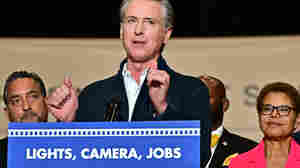

The Indicator from Planet Money
From NPR
A bite-sized show about big ideas. From the people who make Planet Money, The Indicator helps you make sense of what's happening in today's economy. It's a quick hit of insight into money, work, and business. Monday through Friday, in 10 minutes or less.
Most Recent Episodes
Workers on scaffolding lay blocks on one of the larger buildings at a development site where various residential units and commercial sites are under construction. Keith Srakocic/AP hide caption
The FTC's 'click to cancel' rule was meant to make unsubscribing easier. A court has now blocked it from taking effect. Jenny Kane/AP hide caption
Hillary Hanning stands behind her bar, The Little House, in New Orleans, La. She lost $10,000 after fraudsters took over her social media accounts. Stephan Bisaha/Gulf States Newsroom hide caption
President Trump signed the One Big, Beautiful Bill Act on July 4, which extends tax cuts from 2017 and adds new ones. The White House/AP Newsroom hide caption









